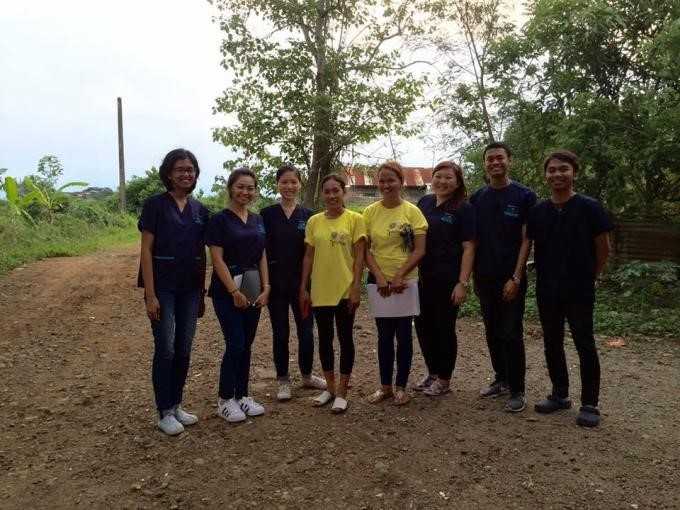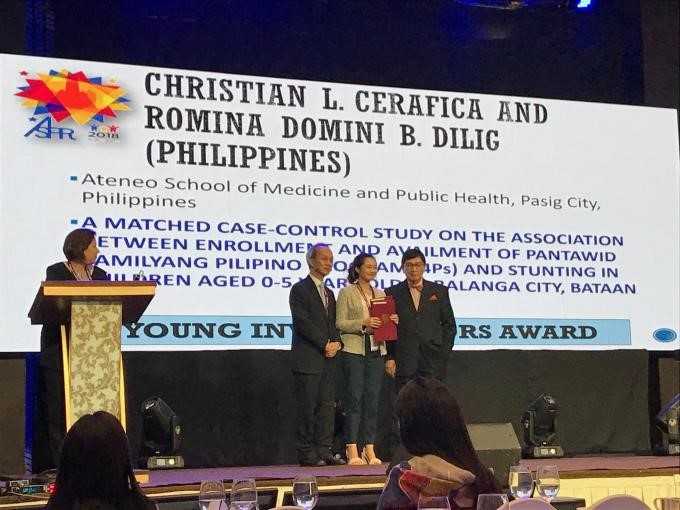Ateneo students’ research recognized by the Asian Society for Pediatric Research
In 2008, the Department of Social Welfare and Development (DSWD) launched the Pantawid Pamilyang Pilipino Program (4Ps) providing conditional cash grants to the poorest of the country’s population. The program aims to break the vicious cycle of poverty by ensuring that children stay in school and improve their health, thereby increasing their access to better jobs and opportunities. Guided by this core mission, a group of six (6) students from the Ateneo School of Medicine and Public Health (ASMPH) set out to examine the efficacy of the program. Their study, entitled “A Matched Case-Control Study on the Association between Enrollment and Availment of Pantawid Pamilyang Program (4Ps) and Stunting in Children Aged 0-5 Years Old in Balanga City, Bataan” was in the Top 10 [out of 200] researches featured in the 14th Congress of the Asian Society for Pediatric Research (ASPR). ASMPH was the only medical school that made the Top 10, the others were medical residents.
For their work, the six students—Christian Cerafica, Romina Dilig, Louie Gutierrez, Camille Mallillin, Patricia Quintin and Stephanie Tan —also received the Young Investigators Award. Dilig (B.S. Psychology 14, MD-MBA’20) represented the group at the conference held in Manila last October 2-4, 2018.

The group with barangay health workers in Bataan. Photo courtesy of Romina Dilig.
The study was the result of their medical research-writing project, where they had to “produce a study that is distinctly public health-related,” Dilig said. While there are many national health and wellness programs, 4Ps caught the group’s attention.
“We wanted to evaluate a national program and the 4Ps is very interesting. It is also very controversial. We do not know if it is working or not. At the same time, you have so many enrollees all over the country.”
Understanding the 4Ps
The 4Ps is patterned after social welfare programs like Brazil’s Bolsa Familia and Mexico’s Opportunidades. It has a two-pronged approach: social assistance and social development. Beneficiaries need to comply with certain requirements to receive cash assistance such as regular health checkups, enrolment of children in school, and attendance in family development sessions (FDS). DSWD stresses that the FDS augments parents’ skills and knowledge on issues such as education, health, and wellness. In turn, these can help parents and guardians take a more proactive role in raising their children.
Since 2008, the program has served 4,875,760 households in 144 cities and 1,483 municipalities in 80 provinces from across the country. Subject to compliance, a household can receive monthly grants for health (PhP 500 per beneficiary), education (PhP 300 for every monitored child in elementary and PhP 500 for every monitored child in high school), and a rice subsidy (PhP 600). An Unconditional Cash Transfer (UCT) subsidy (Php 200) given to mitigate the price increase of basic goods.
Putting their knowledge at work
One of the program’s objectives is to improve the health of young children and mothers. Pivoting slightly from a similar research, the group zeroed in on the program’s youngest recipients --- children aged 0-5.
Bringing their own perspective and with guidance from their professors, the group used an empirical research approach to look beyond mere biological symptoms. The study led to the conclusion that 4Ps is not protective. Even though the recipients were getting cash, Dilig said, there was still a high prevalence of growth stunting.

Romina Dilig with Yu Lung Lau, President of the Asian Society for Pediatric Research (left) and Genesis C. Rivera,
MD, FPPS, President, 14th Congress of the Asian Society for Pediatric Research (right). Photo courtesy of Romina Dilig
ASMPH, recognizing the potential benefits of the study, forwarded it to ASPR. It was a happy coincidence that their research was consistent with the year’s conference theme, Emergent and Relevant Issues in Child Health.
Formed in 2005, ASPR held it first congress in the same year in Tokyo, Japan. Acknowledging the challenges in child health, the society strives to “improve child health through promoting research in Asia.” By organizing conferences, ASPR accentuates the role of researches to address various pediatric health challenges.
With so many incredible researches being done in the medical field, receiving ASPR’s recognition opens opportunities for medical students like Dilig. Involvement of students in these experiences enables them to see real-world aspects of the impact of medicine to society.
“You have to look at the people around the patient, how they affect the health of the patient, as well as the overarching community around the patient and how they contribute to the disease and the wellness of the patient,” Dilig said.
